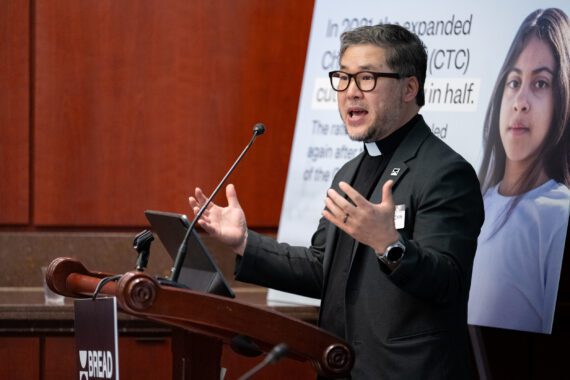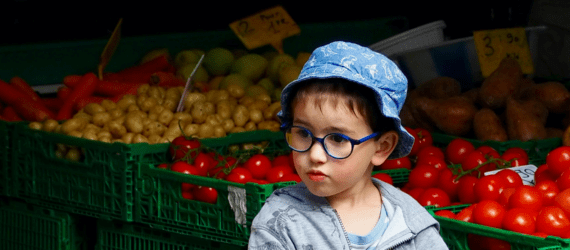By Marlysa D. Gamblin
The House tax proposal contains language that would limit eligibility for the child tax credit (CTC) to taxpayers who provide a Social Security number (SSN). But this proposal is misguided. Requiring a SSN to file for the CTC will hurt both low-income families and local/state economies.
Losing access to the CTC would worsen hunger and poverty among U.S. citizen children who live with an undocumented parent. This group of 4.5 million children is already at higher risk of hunger and food insecurity—the term the U.S. department of Agriculture (USDA) uses for those who sometimes run out of money for food. This is certainly ironic given that the original intent of the CTC was to keep children from falling into poverty. And it succeeds in its mission: in 2016, the CTC lifted approximately 2.7 million people out of poverty, including about 1.5 million children.
People who file their taxes using an Individual Taxpayer Identification Number (ITIN) because they do not have an SSN can currently claim the CTC, so citizen children with undocumented parents can benefit from the tax credit. According to the Internal Revenue Service, there are more than 2 million working poor families who pay taxes with ITINs and would be affected by proposals that require a SSN.
Half of all families who claim the CTC earn less than $20,000 per year. Some live on far less, because undocumented farm workers earn as little as $7,500 a year—only one-seventh of the median national income of $59,039. Such low earnings explain why undocumented immigrant households have a food insecurity rate of nearly 24 percent—more than twice the national rate. The average CTC refund of $1,800 is a significant sum for families living in poverty, and one that will buy a lot of groceries.
The second harmful impact of restricting the CTC to taxpayers with SSNs is damage to local economies, particularly in communities with many immigrants. According to the Pew Research Center, there are 11.3 million undocumented immigrants in the United States, 8 percent of the workforce. They pay taxes and spend money in their local economies. In fact, undocumented immigrants currently pay $11.6 billion annually in state and local taxes. That is in addition to the jobs they support with their local spending and in addition to federal taxes. Taking resources from families with children, many of whom are struggling to put food on the table, will only hurt local economies since these families will have less money to spend.
If we are serious about ending U.S. hunger and poverty, policymakers need to be serious about preserving the original intent behind smart policies such as the CTC. A tax refund for low-wage workers with children to support helps the workers, the children, and the economy. According to the ideals our country was founded on, we should be expanding opportunities for everyone so they can improve their own lives and those of their children.
Marlysa D. Gamblin is the domestic advisor for policy and programs for specific populations at Bread for the World Institute.



